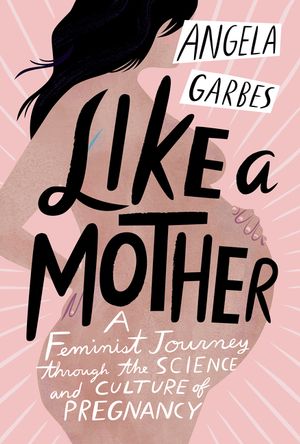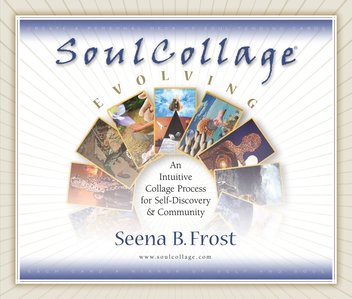The Counselor's Bookshelf:
|
 Like a Mother: A feminist journey through the science and culture of pregnancy might not seem like an obvious book for a mental health themed blog. Or, on the other hand, maybe it does? Maybe it makes a lot of sense. We talk about postpartum depression like it's a discrete thing that happens to some people (yes, men get it too) after a new baby is born. What about the idea that pregnancy, with all of its physiological and psychological effects on the mother, and on the entire family unit, actually causes changes and challenges that exist on a spectrum continually evolving over time. Existential and often paradoxical questions about what it means to bring new life into the world, realities of physical changes in the body, a whole range of psychological experiences (often including many mood states, not just depression) as well as cultural expectations all play into each person's unique experience of growing a family. Also, we need to take into account the harsh truth that pregnancy, birth, and life after can be dramatically different for those who have money and access to resource than for those who are poor, live in under-served communities, and, the statistics on this are clear, are not white. Increasingly we are talking about gender non-binary and transgender people having children in a medical system that does not always understand their needs. All of this will have much to bear on the mental health of the entire family. After hearing an interview on Fresh Air with Angela Garbes, I decided to buy the book. For some reason, perhaps the tone of the interview, I thought it would be a light and intellectually stimulating read. In the end I actually found reading this book to be both inspiring and fascinating, and also hard. Everything she covers from the dramatic, and sometimes long lasting, physical changes to the mother's body, to the scientific community's inattention and relative lack of funding for this critical aspect of women's health, is eye-opening and intense. She doesn't sugar coat anything, and thank goodness, because what we are left with is a deeply honest look at what creating new life really means. So much of mental health work is about giving people a space to be witnessed and held while sharing the good, the bad, and the ugly of human life. It is resources like this book that help us feel less alone when things get weird (or slimy, oozy, sticky and stinky). The following excerpt is a taste of Garber's writing. It shows how fairly simple and straightforward research helps us identify small interventions that can make huge differences in the lives of new mothers. If you like what you read, give the whole book a go. It will open your eyes, soften your heart, and hopefully help you, and your loved ones, feel less alone in the gritty, visceral, emotional and very human task of giving birth. In the early 1980s, after fifteen years of working in labor and childbirth, [Penny] Simkin, a physical therapist by training, was considering a career shift.
0 Comments
 I'm up for just about any creative activity. I love settling into the groove of stitching, drawing or shaping raw materials into something unique. Losing track of time, getting lost in flow, or generally just being in the moment, feels so good. And yet, in all of my crafty years, I never got into collage. Except for a few exceptions (I've made some pretty cool multi-media journals that I might write a blog post about some time), I have mostly stayed away from collage. Until now. I always thought of collage as a free-form activity where you just cut stuff out and glue it together and Voila! you have, well, a poster board covered with a bunch of pictures. For projects over the years I have spent time picking out images and fitting them together but in the end, I'm not sure what to do with it. I know I'm simplifying things, and there are probably serious collage artists that are rolling their eyes right now, but I have to admit, this is where I was at. SoulCollage, developed by the late Seena Frost, a therapist and social worker, in the late 1980s, provides a structure to collage that incorporates all of the things I like about being creative (it's relaxing, intuitive and fun) while adding a depth I didn't expect. This tool, while simple at the surface, offers the possibility of increased self-awareness, validation and inner and outer transformation akin to work done in psychotherapy. SoulCollage is a lifelong process that you can start at any time. Through the process of making a "deck" of 5 x 8 cards- as many as you want - you create a visual and tactile tool that facilitates awareness and integration of emotions, aspects of self, archetypes, and even shadow sides of ourselves that are begging to be acknowledged and validated. (For those familiar with IFS, this is essentially a process of making a visual representation of, and then entering a dialogue with, our parts.) SoulCollage Evolving is a light read that explains the how-to of this technique clearly and concisely. The book describes the different suits we create in our deck and outlines a technique for speaking through the images so that their wisdom is heard and internalized. Although I recommend reading the book and keeping a copy on your shelf for ongoing reference, I more highly recommend finding a SoulCollage workshop near you to give this process a try in a group setting. I will be completing a SoulCollage facilitator training at the end of August so check back in this fall for facilitated group offerings in the Portland area! If this blog post piques your interest, let me know! I'd love to talk more about this technique and perhaps collaborate in a shared SoulCollage experience. |
The Counselor's Bookshelf:Sharing the books, articles, podcasts, and other resources I'm drawing from personally, and in my work as a counselor. Archives
October 2019
Categories
All
|
Proudly powered by Weebly
 RSS Feed
RSS Feed